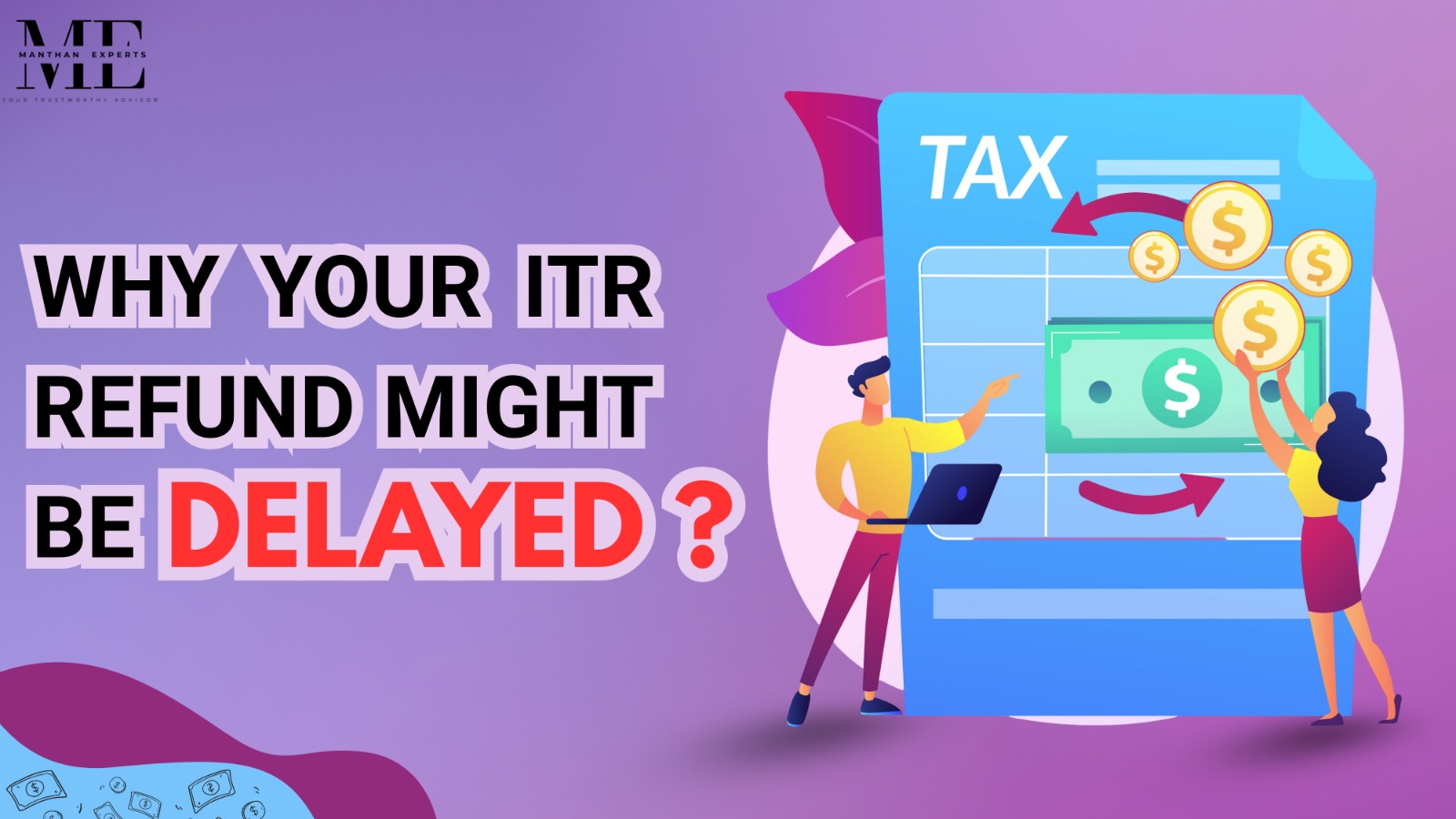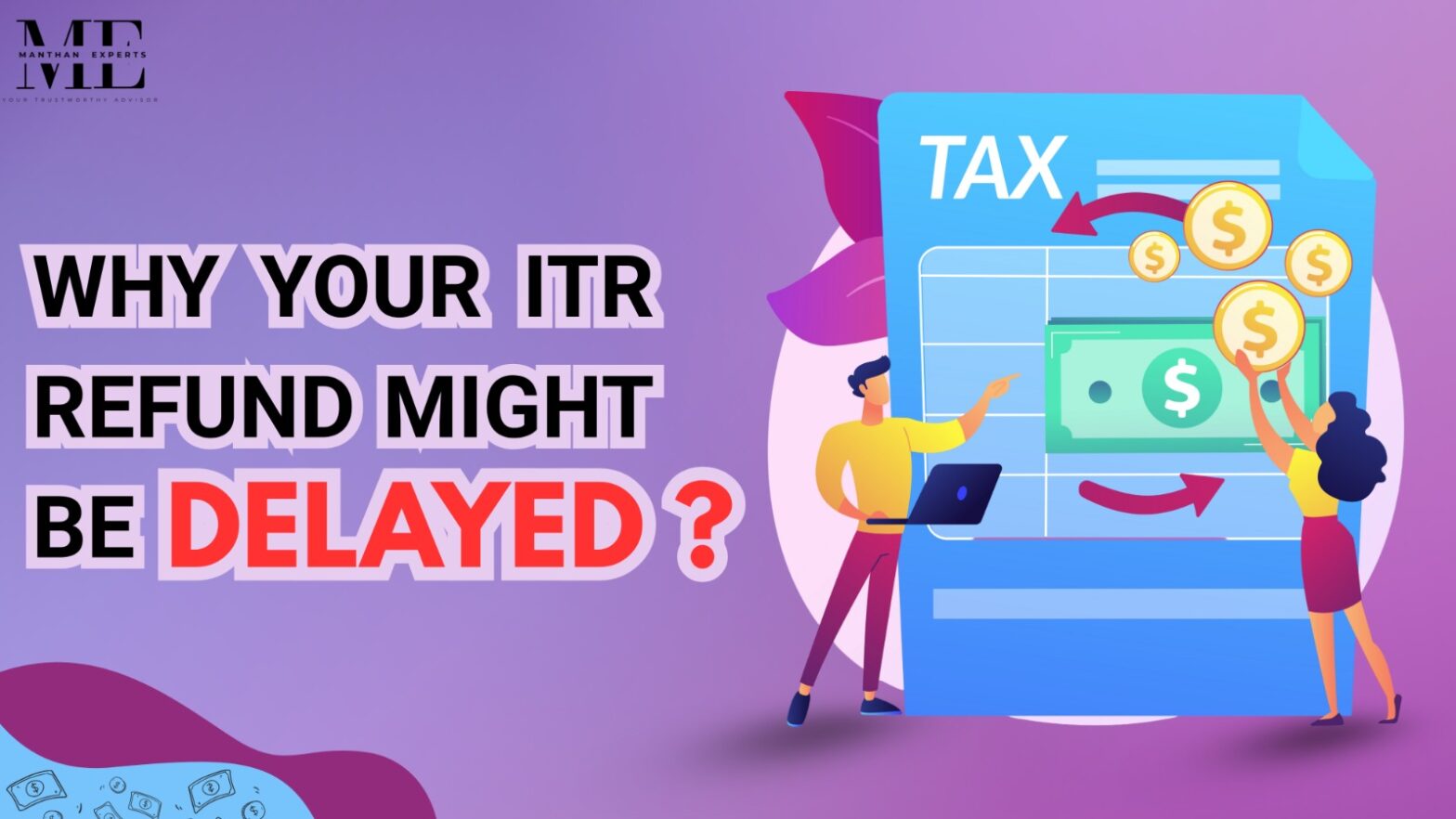Why ITR Refunds Might Be Delayed – Common Reasons Explained
Manthan Experts
October 6, 2025

Introduction
Filing an Income Tax Return (ITR) on time often brings a sense of relief. For many taxpayers, the most awaited part is the credit of the refund into the bank account. However, delays in receiving refunds are not uncommon. In most situations, there is a clear reason behind the wait. Each year, Manthan Experts supports taxpayers and return filers with ITR filing, and one of the most frequent queries received is: “Why hasn’t the refund been processed yet?” Let’s look at the key reasons.
Return Still Under Processing
After submission, an ITR is not immediately refunded. It first undergoes processing at the Centralized Processing Centre (CPC). If e-verification has not been completed, processing does not even begin. The duration may also vary depending on the time of filing.
Tip: Complete e-verification within thirty days of filing.
Bank Account Issues
Incorrect or unverified bank details often lead to refund delays. Even a small error in account number or IFSC code can block the transaction. If the account is inactive, closed, or not linked with PAN, the refund remains undelivered.
Tip: Validate and pre-check bank details before filing.
Errors in the Return
The data in the return must match the records with the Income Tax Department, including Form 26AS, AIS, and TIS. Any mismatch can result in a hold on the refund. Examples include:
- Claiming TDS not available in Form 26AS
- Wrong income details
- Name or PAN mismatches
Tip: Double-check all details or seek professional guidance before submission.
Adjustment Against Previous Dues
If there are unpaid tax liabilities from earlier years, the department can adjust the current refund against them. Many tax filers discover such dues only when the refund amount is reduced or withheld.
Tip: Regularly check the income tax portal for pending demands or notices.
Pending Clarifications
At times, the department issues a notice requiring further clarification or additional documents. Until a reply is submitted, the refund will remain on hold.
Tip: Monitor email, SMS, and portal notifications carefully and respond promptly.
Heavy Filing Season
During peak months (July-September), the volume of return filings increases significantly. Processing time is often longer during this phase.
Tip: Filing early helps avoid seasonal delays.
Technical or Backend Issues
Occasionally, delays occur due to system glitches at the department’s end or issues in the refund banking system. Though rare, such factors can still affect timelines.
How to Track Refund Status
Refund status can be tracked through:
- Income Tax e-filing portal – by logging into the account.
- NSDL refund status page – using PAN and assessment year.
These platforms display whether the refund is processed, dispatched, or on hold.
Steps to Resolve Refund Delays
- Ensure bank details are pre-validated and PAN-linked.
- Verify income records against Form 26AS, AIS, and TIS.
- Check for outstanding tax demands.
- Respond quickly to departmental communications.
- Seek professional support if the delay continues.
Conclusion
ITR refund delays are usually the outcome of minor issues such as data mismatches, pending verification, or peak processing loads. While the waiting period can be frustrating, most delays are easily resolvable.
At Manthan Experts, services go beyond filing – ensuring accuracy, monitoring refund status, and assisting taxpayers in resolving refund-related issues smoothly.

